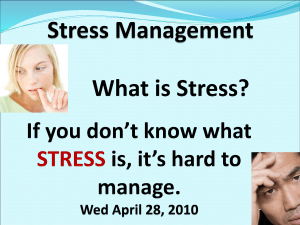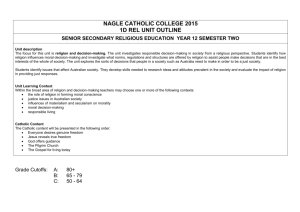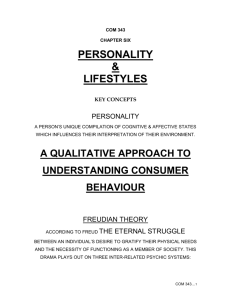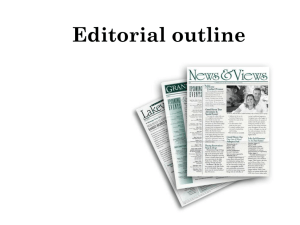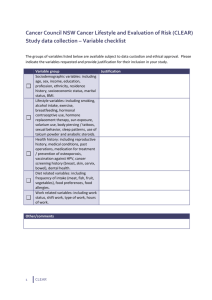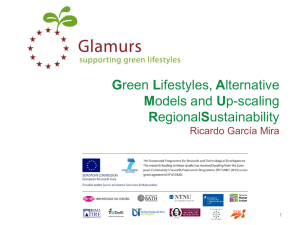Year 12 1CD - St Lukes College
advertisement
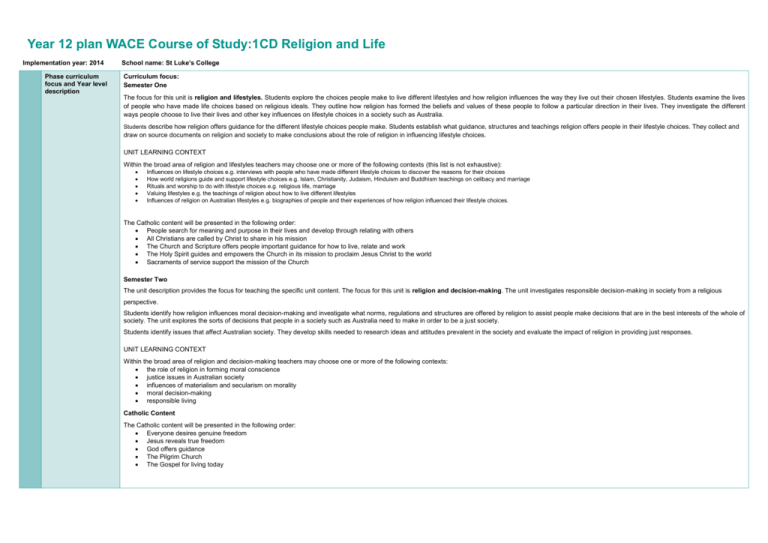
Year 12 plan WACE Course of Study:1CD Religion and Life Implementation year: 2014 Phase curriculum focus and Year level description School name: St Luke’s College Curriculum focus: Semester One The focus for this unit is religion and lifestyles. Students explore the choices people make to live different lifestyles and how religion influences the way they live out their chosen lifestyles. Students examine the lives of people who have made life choices based on religious ideals. They outline how religion has formed the beliefs and values of these people to follow a particular direction in their lives. They investigate the different ways people choose to live their lives and other key influences on lifestyle choices in a society such as Australia. Students describe how religion offers guidance for the different lifestyle choices people make. Students establish what guidance, structures and teachings religion offers people in their lifestyle choices. They collect and draw on source documents on religion and society to make conclusions about the role of religion in influencing lifestyle choices. UNIT LEARNING CONTEXT Within the broad area of religion and lifestyles teachers may choose one or more of the following contexts (this list is not exhaustive): Influences on lifestyle choices e.g. interviews with people who have made different lifestyle choices to discover the reasons for their choices How world religions guide and support lifestyle choices e.g. Islam, Christianity, Judaism, Hinduism and Buddhism teachings on celibacy and marriage Rituals and worship to do with lifestyle choices e.g. religious life, marriage Valuing lifestyles e.g. the teachings of religion about how to live different lifestyles Influences of religion on Australian lifestyles e.g. biographies of people and their experiences of how religion influenced their lifestyle choices. The Catholic content will be presented in the following order: People search for meaning and purpose in their lives and develop through relating with others All Christians are called by Christ to share in his mission The Church and Scripture offers people important guidance for how to live, relate and work The Holy Spirit guides and empowers the Church in its mission to proclaim Jesus Christ to the world Sacraments of service support the mission of the Church Semester Two The unit description provides the focus for teaching the specific unit content. The focus for this unit is religion and decision-making. The unit investigates responsible decision-making in society from a religious perspective. Students identify how religion influences moral decision-making and investigate what norms, regulations and structures are offered by religion to assist people make decisions that are in the best interests of the whole of society. The unit explores the sorts of decisions that people in a society such as Australia need to make in order to be a just society. Students identify issues that affect Australian society. They develop skills needed to research ideas and attitudes prevalent in the society and evaluate the impact of religion in providing just responses. UNIT LEARNING CONTEXT Within the broad area of religion and decision-making teachers may choose one or more of the following contexts: the role of religion in forming moral conscience justice issues in Australian society influences of materialism and secularism on morality moral decision-making responsible living Catholic Content The Catholic content will be presented in the following order: Everyone desires genuine freedom Jesus reveals true freedom God offers guidance The Pilgrim Church The Gospel for living today Achievement standard (From Schools Curriculum and Standards Authority) Grade Descriptors: A: Demonstrates a clear, detailed and accurate knowledge of the main features relevant to a study of religion. Gathers, organises and uses a range of relevant sources as evidence to support explanations, arguments and/or respond to problems/issues that are relevant to a study of religion, society or people. Provides explanations and/or arguments that are relevant to the study of religion, and are clear, concise and well structured. B: Demonstrates some depth of knowledge of most of the main features relevant to a study of religion. Gathers, organises and uses evidence in support of explanations, ideas and/or arguments related to a study of religion, society or people. Provides explanations about religion and/or its place in society or what it means to individuals, that can be followed, make sense and demonstrate thought that is relevant. C: Demonstrates adequate knowledge of the main features involved in a study of religion. Gathers, organises or uses basic information to support explanations, ideas and/or arguments about religion and/or society. Provides explanations about religion and/or its place in society or what it means to individuals, that are sound but may at times be simple and/or difficult to follow. D: Demonstrates a minimal and/or superficial knowledge of the main features involved in a study of religion. Gathers, organises and uses information related to a study of religion but shows significant errors and/or a lack of clarity about how information is to be used or related to this study. Provides explanations that are difficult to follow, lack sound reasoning or are limited either in terms of expression or detail. E: Demonstrates little or no knowledge of the main features involved in a study of religion. Gathers information that is either not useful, not organised, insufficient or used incorrectly in a study of religion. Provides explanations that are confused, with little or no understanding communicated. Semester One Course Content Semester Two This unit includes knowledge, understandings and skills to the degree of complexity described below. This unit includes knowledge, understandings and skills to the degree of complexity described below. The nature of religion The nature of religion The search for meaning questions people experience when considering lifestyle choices spiritual qualities reflected in lifestyle choices. Religious belief systems ways religion can be defined and described important religious beliefs that offer answers to the questions people ask about lifestyle choices. Religious practices and structures religious teachings in relation to lifestyles important religious celebrations and events associated with lifestyle choices. The search for meaning religious and/or spiritual responses to life’s questions and experiences challenges people encounter when dealing with moral and ethical issues. Religious belief systems guidance offered by a religion as to how people should live life the relationship between this guidance and religious beliefs. Religious practices and structures the main features of particular laws and/or teachings in a religion an experience and/or structure provided by a religion to support people endeavouring to live moral and ethical lives. The influence of religion The place of religion in society issues of social justice and the ways a religion responds. Religion in historical contexts examples from history of the relationship between religion and social issues. Contemporary issues for religion a religious point of view about a current social issue debated in society. The place of religion in society how religion relates to people in their everyday life. Religion in historical contexts the life of a key religious figure from the past the key features of the foundation and growth of a particular religious group or organisation. Contemporary issues for religion a current social issue and the response of religion to this social issue e.g. poverty. Religious inquiry and processes Religious inquiry and processes Investigative processes and research skills how to construct questions that guide the gathering of information techniques for collecting information from different types of evidence conventions required for gathering and recording information methods of organising and recording data. Interpreting, analysing and synthesising information ways to classify and group information how to distinguish fact and opinion conventions for describing information concerning the nature and role of religion techniques for summarising information. Forms of communication that present findings and conclusions techniques to communicate information and ideas about people and religion methods of citing text references and bibliographies techniques for editing a draft body of work. Investigative processes and research skills how to construct questions that guide the gathering of information techniques for collecting information from different types of evidence conventions required for gathering and recording information methods of organising and recording data. Interpreting, analysing and synthesising information ways to classify and group information how to distinguish fact and opinion conventions for describing information concerning the nature and role of religion techniques for summarising information. Forms of communication that present findings and conclusions techniques to communicate information and ideas about people and religion methods of citing text references and bibliographies techniques for editing a draft body of work. The influence of religion Teaching and learning Unit overview The above content will be covered through the context of the Key Understandings mandated by the Bishops of Western Australia Semester 1 Semester 2 Week 1 – 3: Finding Meaning and Purpose in Life Week 4 – 6 : Christians share in the work of Jesus Week 7 – 8: The Church offers guidance for how to live, relate and work. Week 9 – 10: The Holy Spirit guides and empowers the Church Week 11 – 13: The Holy Spirit guides and empowers the Church Week 14 – 16: Sacraments of Service and the mission of the Church Week 1 – 3: Everyone desires genuine freedom Week 4 – 6: For Christians, Jesus is the source of true freedom Week 7 – 9: God offers people guidance for living the Christian Vision Week 10 – 12: The story of God’s people is a story of pilgrimage Week 13 – 16: Catholics today are called to be free and responsible in how they live General capabilities and cross-curriculum priorities Opportunities to engage with: Opportunities to engage with: Key to general capabilities and cross-curriculum priorities Develop assessment Assessment For advice and guidelines on assessments see School Curriculum and Standards Authority of Western Australia Literacy Numeracy Opportunities to engage with: ICT capability Critical and creative thinking Aboriginal and Torres Strait Islander histories and cultures Personal and social capability Asia and Australia’s engagement with Asia Ethical behaviour Semester 2 Assessment Assessment Type of Assessment Task Due Date 15% 1. Exposition Short and extended answers to questions that relate to a text resource studied in class and an understanding of the workplace. Term 1 end of week 3 20% 2. Investigation Investigation Investigate Vatican II and the impact it had on the lives of Australian Catholics Term 1 end of week 7 15% 3. Analysis An analysis of an important religious belief that offers answers to the questions people ask about life and its meaning Term 2 week 4 Intercultural understanding Sustainability Semester 1 Weighting Opportunities to engage with: Weighting Type of Assessment Task Due Date 15% 5. Exposition Explore the meaning of Freedom within a particular religion. Explore external and internal pressures that influence people and the decisions they make. Questions related to sources provided by the teacher and an inclass essay Term 2 end of week 9 20% 6.Investigation Conduct an investigation on a religious practice provided by a religion to assist people in living a moral and ethical life. Term 3 end of week 7 15% 7. Analysis An analysis on how a religion expresses a concern for freedom, justice and social justice AND how this influences followers of that religion to respond to issues in Australian society. Term 4 week 4 Make judgments and use feedback Moderation Cross marking between all teachers and classes. Use grade related descriptors when determining achievement standards. Adjust cut off marks for grades and programmes if necessary. Cross marking between all teachers and classes. Use grade related descriptors when determining achievement standards. Adjust cut off marks for grades and programmes if necessary.-

